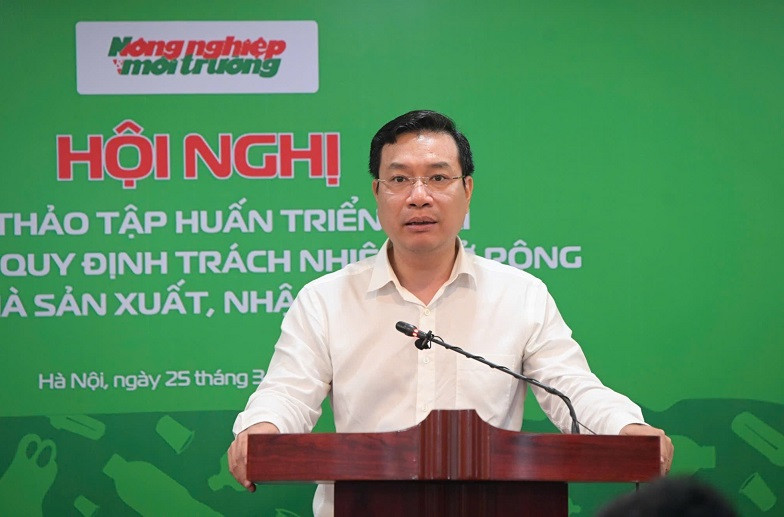At a workshop on implementing the EPR regulations, organized on March 25 by the Department of Environment (under the Ministry of Agriculture and Environment) and the Agriculture and Environment Newspaper, Ho Kien Trung, Deputy Director of the Department of Environment, stated that Vietnam’s legal system has fully established the framework for EPR. The regulations give enterprises the option to either organize direct recycling or make financial contributions to support recycling activities.

Most recently, Government Decree No. 05/2025 and Circular No. 07/2025 from the Minister of Natural Resources and Environment have further refined the legal framework, clearly defining the entities responsible for EPR compliance.
Regarding recycling obligations, manufacturers and importers of products such as tires, lubricants, batteries, accumulators, and certain types of packaging are required to recycle from January 1, 2024. Manufacturers and importers of electrical and electronic products must comply with recycling obligations from January 1, 2025, while producers and importers of vehicles are subject to recycling requirements from January 1, 2027.
For waste collection and treatment obligations, manufacturers and importers of disposable batteries, diapers, chewing gum, tobacco, some synthetic plastic products, and pesticide packaging must handle waste collection and treatment starting from January 1, 2022.
The deadline for manufacturers and importers to register, submit recycling plans, and declare financial contributions to the Vietnam Environmental Protection Fund is March 31 each year.
Despite these clear regulations, many businesses, especially smaller ones, still lack awareness or fail to comply with EPR requirements.
According to Ho Kien Trung, while some enterprises have already made financial contributions for recycling and waste management, others have yet to fulfill their obligations. To address this issue, authorities will conduct inspections of non-compliant businesses, and administrative penalties will be imposed on violators.
Strengthening inspection and strictly penalizing violations are crucial steps to ensure the implementation of extended producer responsibility as mandated by the Law on Environmental Protection.
Vu Diep